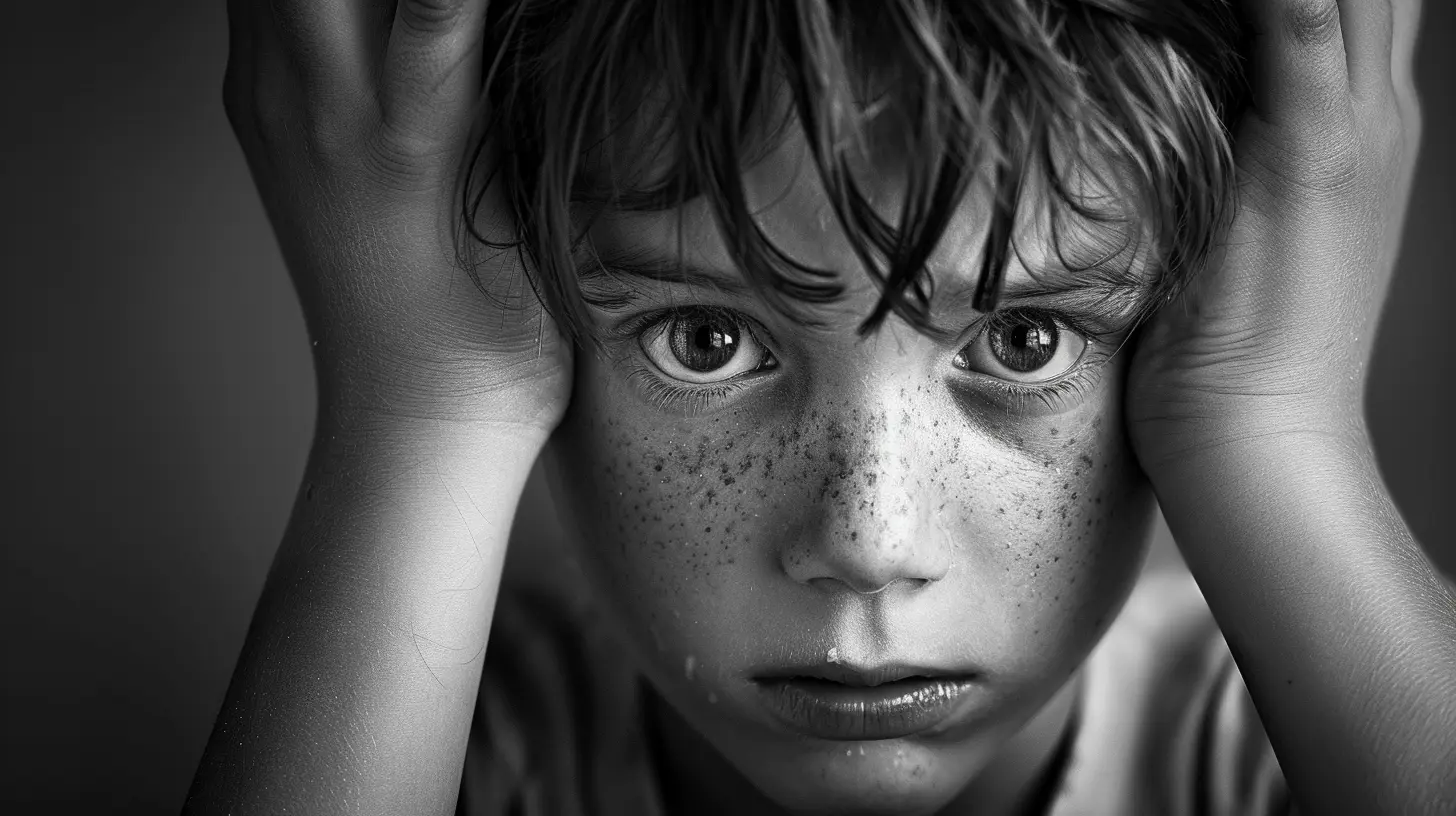How to Handle Guilt as a Parent
26 May 2025
Parenting is a journey filled with love, laughter, and unforgettable moments. But let’s be real—it also comes with its fair share of guilt. Whether it’s missing a school play because of work, losing your temper after a long day, or simply wondering if you’re doing enough, that nagging feeling of guilt can creep in and weigh you down.
So, how do you handle it? How do you silence that little voice telling you that you’re failing, even when you’re doing your best? Let’s dive deep into parental guilt—why it happens, how to manage it, and how to move forward with confidence.

Understanding Parental Guilt
Parental guilt isn’t just an occasional feeling—it’s a common experience for moms and dads everywhere. You love your child more than anything, so it makes sense that you want to do everything right. But here's the thing: There’s no such thing as a perfect parent.Guilt often stems from high expectations—either the ones we set for ourselves or those imposed by society. Social media, parenting books, and even well-meaning family members can make us feel like we’re constantly falling short. The result? We beat ourselves up over things that, in the grand scheme of life, probably don’t matter as much as we think.

Common Reasons Parents Feel Guilty
1. Not Spending Enough Time With Your Kids
Between work, house chores, and personal responsibilities, there just aren’t enough hours in the day. You might feel guilty about missing bedtime stories or not being around as much as you'd like.2. Losing Your Temper
We all have moments where patience runs thin. Yelling at your child or snapping in frustration can leave you feeling like the worst parent alive.3. Working Outside the Home
Many parents struggle with guilt over having a career. Whether you work from home or outside, there’s always that lingering thought: “Am I prioritizing work over my child?”4. Using Screens as Babysitters
Sometimes, handing your child a tablet for peace and quiet feels like the only option. But then the guilt kicks in—"Should I be engaging with them instead?"5. Not Being Able to Afford Everything
Wanting to give your child the world but being limited by finances can be heartbreaking. It’s easy to feel guilty when you can't provide everything they ask for.6. Comparing Yourself to Other Parents
Social media is a highlight reel. You see perfect family outings, home-cooked meals, and smiling kids, and suddenly, you feel like you’re falling short. But remember, no one posts the meltdowns, the mess, or the struggles.
How to Handle Parental Guilt
1. Acknowledge Your Feelings—But Don’t Dwell on Them
Guilt is a natural emotion, but it shouldn’t control you. Instead of pushing it away, acknowledge it. Ask yourself, “Why am I feeling guilty?” Once you figure that out, you can address it logically rather than emotionally.2. Adjust Your Expectations
Perfection doesn’t exist in parenting. No matter how hard you try, there will always be something you could have done differently. Instead of aiming to be flawless, focus on being present and doing your best.3. Apologize and Move On
Made a mistake? Lost your temper? Forgot an important event? It’s okay. Apologizing to your child not only teaches them about accountability, but it also shows them that everyone makes mistakes. What matters is how you handle those mistakes.4. Prioritize Quality Over Quantity
It’s not about how much time you spend with your child—it’s about how meaningful that time is. A few minutes of genuine, undistracted connection is more valuable than hours of being physically present but mentally elsewhere.5. Practice Self-Compassion
Would you judge a friend as harshly as you judge yourself? Probably not. So why not extend the same kindness to yourself? Remind yourself that you’re doing your best, and that’s enough.6. Take Care of Yourself
You can't pour from an empty cup. If you’re constantly exhausted, stressed, and running on fumes, you’ll struggle to be the parent you want to be. Prioritizing rest, hobbies, and self-care isn’t selfish—it’s necessary.7. Stop Comparing Yourself to Others
Comparison is the thief of joy. Behind every seemingly perfect social media post is a real family with real struggles. Focus on your own parenting journey rather than someone else’s highlight reel.8. Accept That ‘Good Enough’ Is Good Enough
Your child doesn’t need a perfect parent; they need a loving, caring, and present one. Some days, just showing up and doing your best is more than enough.
Turning Guilt Into Growth
Instead of letting guilt drag you down, use it as a tool for growth. If something is truly bothering you, see if there’s a way to improve. Want to spend more time with your child? Schedule a special outing. Regret losing your temper? Work on stress management techniques.Guilt becomes harmful when it turns into self-criticism. But when used correctly, it can be a gentle nudge to help you become the parent you want to be.
The Takeaway
Parental guilt is normal, but it doesn’t have to define you. No parent gets everything right, and that’s okay. What truly matters is that your child feels loved, supported, and safe.The next time guilt sneaks in, take a deep breath, remind yourself that you’re doing your best, and keep moving forward. Because at the end of the day, the love you give your child will always mean more than any “mistake” you think you’ve made.
all images in this post were generated using AI tools
Category:
Parenting StrugglesAuthor:

Noah Sawyer
Discussion
rate this article
3 comments
Iliana Weber
“Your feelings are valid; remember, every parent struggles. We’re all learning together. You got this!”
June 20, 2025 at 4:59 AM

Noah Sawyer
Thank you for your support! It’s comforting to know we’re not alone in this journey.
Theodore Riggs
Great article! Parenting is a journey filled with ups and downs. Embracing our imperfections and letting go of guilt can truly empower us. Thanks for sharing!
June 6, 2025 at 3:08 AM

Noah Sawyer
Thank you for your kind words! I completely agree—embracing our imperfections is key. I'm glad you found the article helpful!
Zevonis Sullivan
Thank you for sharing these insightful strategies for managing parental guilt. It’s refreshing to see a focus on self-compassion and mindfulness in parenting. Your tips empower parents to embrace imperfections and prioritize their well-being, ultimately fostering healthier family dynamics. I appreciate your thoughtful approach to this common challenge!
June 3, 2025 at 3:40 AM

Noah Sawyer
Thank you for your kind words! I'm glad you found the strategies helpful in supporting self-compassion and mindfulness in parenting.



